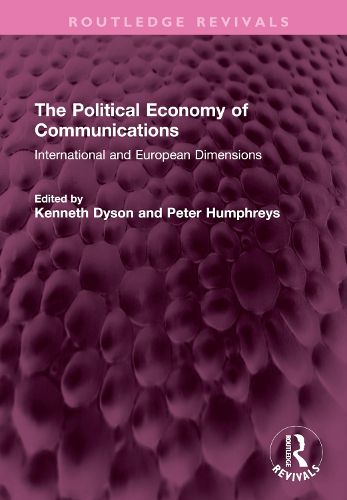Readings Newsletter
Become a Readings Member to make your shopping experience even easier.
Sign in or sign up for free!
You’re not far away from qualifying for FREE standard shipping within Australia
You’ve qualified for FREE standard shipping within Australia
The cart is loading…






First published in 1990, The Political Economy of Communications explores the central theme of the relationship between politics and markets in policy development. The contributors show how governments have been drawn into increasing interdependency by technological and market developments, with international institutions like the European Community becoming more important in these policy areas. They argue that neither government ideologies nor market and technological forces offer an adequate account of the processes of change in communications policy. These conclusions lead to a critique of central theories of international political economy, notably neo-liberalism, and the authors advocate instead a neo-pluralist perspective for the study of political economy of communications - an approach that takes institutions much more seriously as a central unit of analysis. The book will be of interest to students of international relations, European studies, and media and telecommunication studies, as well as to political scientists and economists concerned with public policy.
$9.00 standard shipping within Australia
FREE standard shipping within Australia for orders over $100.00
Express & International shipping calculated at checkout
First published in 1990, The Political Economy of Communications explores the central theme of the relationship between politics and markets in policy development. The contributors show how governments have been drawn into increasing interdependency by technological and market developments, with international institutions like the European Community becoming more important in these policy areas. They argue that neither government ideologies nor market and technological forces offer an adequate account of the processes of change in communications policy. These conclusions lead to a critique of central theories of international political economy, notably neo-liberalism, and the authors advocate instead a neo-pluralist perspective for the study of political economy of communications - an approach that takes institutions much more seriously as a central unit of analysis. The book will be of interest to students of international relations, European studies, and media and telecommunication studies, as well as to political scientists and economists concerned with public policy.